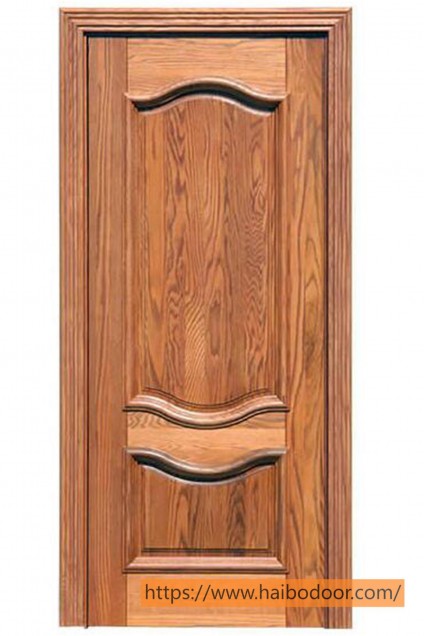When considering materials and craftsmanship for long-term residential or commercial use, the Wooden Door Factory stands out as a practical and dependable option. Known for its commitment to reliable performance, a wooden door facility plays a critical role in shaping interiors that last. The durability of wooden doors is not simply a function of the raw material; it involves an entire production philosophy—from timber selection and treatment, to structural construction and finishing—that is designed to withstand time, climate, and use.
Material Selection Built to Last
One of the most significant contributors to the resilience of wooden doors is the careful choice of materials. High-quality hardwoods, such as oak, teak, or mahogany, are often used due to their strength, density, and natural resistance to wear. A Wooden Door Factory prioritizes sourcing lumber that has been properly kiln-dried to reduce moisture content and prevent warping, cracking, or swelling over time.
In addition to solid wood, engineered options such as laminated veneer lumber (LVL) and medium-density fiberboard (MDF) are frequently incorporated. These materials offer structural stability while maintaining the aesthetic appeal of traditional wood. The combination allows factories to deliver doors that perform consistently in various temperature and humidity conditions without compromising on look or functionality.
Construction Techniques That Withstand Daily Use
Durability doesn’t end with good material—it extends into how doors are assembled. Many wooden door manufacturers employ mortise and tenon joinery or dowel joint systems, which are known for their superior hold under stress. Reinforced cores, multi-layered panels, and solid edges contribute to impact resistance and long-term performance.
Edge banding, veneer application, and lamination are done with precision to reduce vulnerability to peeling or surface delamination. Protective coatings such as polyurethane or eco-friendly lacquers are applied to safeguard against scratches, stains, and UV exposure. These finishes not only improve the appearance but also extend the lifecycle of the door, especially in high-traffic areas like offices, hotels, and busy households.
Versatility in Application
Another reason a Wooden Door Factory remains a durable solution is its ability to tailor doors to meet a wide range of architectural needs. Whether the requirement is for flush doors, panelled models, or glass-integrated designs, wooden doors can be customized for thickness, height, and internal core material.
This adaptability enhances their durability, especially in cases where the door must meet specific functional demands such as sound insulation, fire retardancy, or moisture resistance. For instance, solid-core doors are often used in areas requiring more insulation or soundproofing, while hollow-core options may be ideal for internal passageways where lightweight and budget-friendly solutions are sufficient.
Environmental Conditions and Weather Resistance
Outdoor-facing doors face additional durability challenges, such as rain, wind, and temperature fluctuations. In such cases, the Wooden Door Factory often uses treated wood with enhanced sealing and weather-resistant finishes. Some designs incorporate aluminum or PVC cladding on the exterior face of the wooden door to increase longevity without diminishing the warm appeal of wood from the inside.
Weatherstripping and threshold reinforcements further improve performance in harsh environments, ensuring that the door doesn’t warp, stick, or degrade with seasonal changes. This makes wooden doors a dependable choice even in regions with extreme climates.
Sustainable Practices and Long-Term Value
Durability also relates to sustainability. A door that lasts longer reduces the need for frequent replacements, thereby decreasing material waste and the environmental impact of manufacturing. Many factories have begun using reclaimed or responsibly harvested wood, alongside low-VOC adhesives and water-based finishes, to ensure that strength and sustainability go hand in hand.
Additionally, well-made wooden doors tend to add long-term property value. They convey a sense of permanence and craftsmanship that synthetic options may not replicate. For property developers, interior designers, and homeowners, choosing products from a Wooden Door Factory is not only an aesthetic decision but a practical one for the long haul.
Maintenance and Upkeep
One often overlooked element of durability is ease of maintenance. Wooden doors, when properly sealed, are easy to clean and repair. Minor dents or scratches can usually be sanded and refinished, restoring their appearance without needing a full replacement. This stands in contrast to some composite or metal alternatives, which may dent permanently or rust over time.
Routine upkeep such as polishing, tightening of hinges, or sealing gaps ensures the door remains functional and attractive for years. Factories that provide care instructions or maintenance support make the experience even more user-friendly and cost-effective in the long term.
Value in Both Residential and Commercial Spaces
The durability of doors from a Wooden Door Factory proves especially valuable in diverse applications. In homes, they offer lasting comfort, insulation, and visual appeal. In commercial buildings, they must endure higher foot traffic, frequent cleaning, and compliance with building codes.
By offering models tailored to each environment's usage intensity, wooden door producers ensure that their products are not only beautiful but structurally reliable under pressure. Whether installed in schools, healthcare facilities, office buildings, or private homes, https://www.haibodoor.com/product/melamine-laminated-doors/ these doors are built with the same underlying objective performance that lasts.








